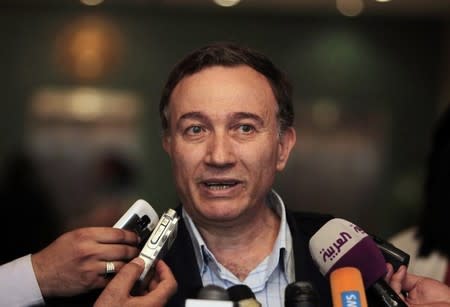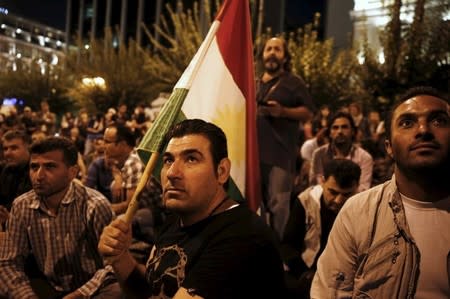Autonomy bid in north Syria divides Kurdish-Arab opposition alliance
BEIRUT (Reuters) - The co-leader of a Kurdish-Arab political alliance in Syria has condemned a decision by the country's Kurdish-controlled northern regions to seek autonomy, demonstrating that opposition to the move exists even among the Kurds' closest allies. The three northern regions agreed at a conference on Thursday to establish a self-administered "federal democratic system of Rojava - Northern Syria". Rojava is the Kurdish name for north Syria. The Damascus government and neighboring Turkey swiftly condemned the move, as did Washington which fears it could complicate U.N.-backed peace talks in Geneva. Haytham Manaa, who is co-chairman of the Syrian Democratic Council (SDC) along with Kurdish activist Ilham Ahmed, told Reuters on Friday the move was inappropriate. "We reject this one-sided initiative and ask them to retract it and work within the framework of the SDC," said Manaa, who spoke on behalf of his political grouping, the Qamah Movement, a central group within the SDC. The SDC, which groups Kurds, Arabs and others, was formed in December at a meeting in northeastern Syria with the stated aim of promoting a secular, democratic vision for the country. The Syrian Kurdish PYD party is part of the SDC and, along with Arab, Assyrian, Turkmen and other groups in the north, was a key proponent of the process that led to Thursday's declaration of a federal system. "One party within the SDC (the PYD) undertook this initiative separately," said Manaa, adding that the regional declaration contravened the aims of the SDC. "We stand for a decentralized, democratic Syria. But when we talk about this, we talk about a system that fits with the situation in Syria, stemming from the circumstances in Syria, and that the Syrian people decide, said Manaa. "This must not be imposed by any side (just) because there are fighters in a (particular) region," Manaa said, referring to the Syria Democratic Forces (SDF), the armed wing of the SDC. The SDF was formed last year in an alliance with the YPG Kurdish militia. Since then, the SDF has mostly fought Islamic State and other insurgent groups fighting to topple Syrian President Bashar al-Assad. The Kurds, who enjoy U.S. military support, have taken control of swathes of northern Syria. The SDC has not been invited to the peace talks in Geneva this week. Manaa was invited in an individual capacity, but refused to attend if the SDC was not invited as a whole, a position he said he still maintains. (Reporting by Lisa Barrington; Editing by Gareth Jones)



